Kola Abiola Denies IBB Apologized for June 12 Annulment, Calls for Public Acknowledgment Kola Abiola, the eldest son of the late Chief Moshood Kashimawo Olawale (MKO) Abiola, has categorically stated that former military ruler General Ibrahim Badamosi Babangida (IBB) never offered a formal apology to the Abiola family over the annulment of the June 12,
Kola Abiola Denies IBB Apologized for June 12 Annulment, Calls for Public Acknowledgment
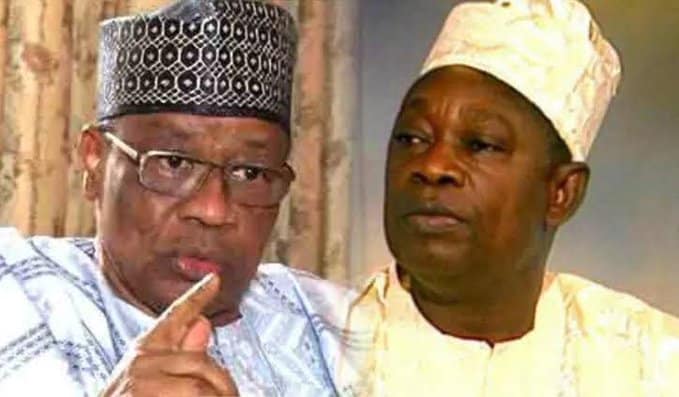
Kola Abiola, the eldest son of the late Chief Moshood Kashimawo Olawale (MKO) Abiola, has categorically stated that former military ruler General Ibrahim Badamosi Babangida (IBB) never offered a formal apology to the Abiola family over the annulment of the June 12, 1993, presidential election. This election, widely regarded as the freest and fairest in Nigeria’s history, was believed to have been won by MKO Abiola before it was controversially nullified by the military government under IBB.
Speaking during an interview with Arise News, Kola challenged the narrative put forward by his younger brother, Lekan Abiola, who had earlier claimed that Babangida offered a private apology to the family and had continued to honor MKO’s legacy through yearly gestures.
Vacant Seats Stir Tension: Constituents Demand Action On Eight Unfilled National Assembly Positions
Kola Abiola made it clear that the supposed private apology mentioned by Lekan is not sufficient to account for the historic damage done by the annulment, which he emphasized was not merely a personal affront to the Abiola family but a grave national injustice.
“President Buhari went public and apologised to the family, the voters, and the country,” Kola said. “That is how it is done, not privately. I’m not aware of such an apology. Maybe to him [Lekan]. This is not a personal thing. It is a national thing.”
Kola’s stance underscores a larger demand for accountability and truth in Nigeria’s democratic journey. He criticized the continued silence or vague expressions of regret from key players involved in the annulment, describing it as a disservice to his father’s legacy and the millions of Nigerians who voted in that election.
Contradicting Accounts Within the Abiola Family
The disagreement between the Abiola siblings has stirred public interest, especially given the historical significance of June 12. Lekan Abiola had earlier stated that IBB apologized privately to the family, recounting that the former leader acknowledged MKO’s victory both privately and later in public statements.
“Ever since we returned from the United States, we have met with IBB, and he apologised to us privately. When he later came out publicly to say he was sorry for annulling the election and acknowledged that MKO won, he simply repeated in public what he had said privately,” Lekan stated.
He also added that IBB has regularly sent representatives to participate in June 12 commemorative events, signaling a form of ongoing remorse and recognition.
However, Kola dismissed these gestures as inadequate. He argued that without an explicit, formal apology to the Nigerian people, any attempts at reconciliation remain hollow. According to him, MKO Abiola’s sacrifice should not be confined to personal remembrances but recognized within a broader national context.
A Legacy Demanding Full Disclosure
Kola further highlighted the importance of identifying and acknowledging all individuals responsible for the annulment of the 1993 elections. He stressed that full disclosure and public accountability are essential steps to preserve the integrity of Nigeria’s democratic history.
“This refusal to identify all those involved in the annulment is a disservice to MKO’s legacy,” he said. “He paid the supreme price for democracy in this country.”
MKO Abiola was arrested in 1994 after declaring himself president, following the annulment of the election by IBB. He died in detention in 1998 under suspicious circumstances during the regime of General Abdulsalami Abubakar, just weeks before his expected release.
Buhari’s Gesture as a Benchmark
Kola praised former President Muhammadu Buhari for formally recognizing June 12 as Democracy Day and for publicly apologizing to the Abiola family and the Nigerian people. He referenced Buhari’s official declaration in 2018, which posthumously honored MKO with the title of Grand Commander of the Federal Republic (GCFR)—a status traditionally reserved for presidents.
“Buhari showed how such an apology should be done—publicly, nationally, and with respect to history. It set the record straight,” Kola said.
National Healing Through Public Atonement
With June 12 continuing to serve as a symbol of democratic resistance and aspiration in Nigeria, calls for full acknowledgment of the events surrounding the annulled election remain potent. For many, including Kola Abiola, the path toward national healing demands more than silent gestures or half-hearted remarks—it requires a sincere and public confrontation with the past.
Until such time, the wounds of June 12 may remain open in the hearts of Nigerians who witnessed one of the country’s most defining democratic betrayals.

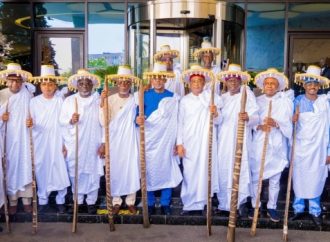

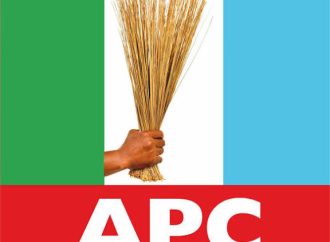
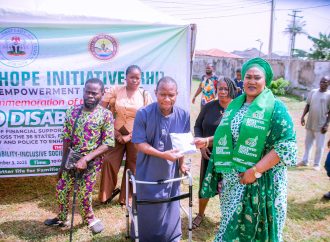
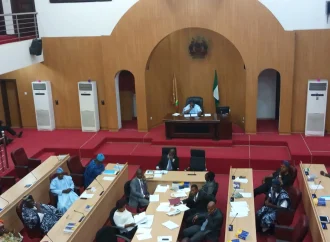


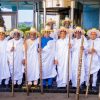
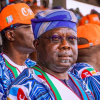

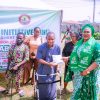





Leave a Comment
Your email address will not be published. Required fields are marked with *